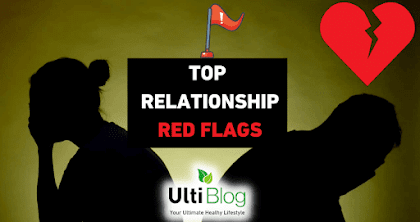Breaking the Cycle Of Tattoo Addiction: Tips For You
Do you like getting tattoos? Do you feel like you need to get more tattoos? While some people think tattoos are an excellent way to show themselves, getting too many can have dire consequences and can leade to a tattoo addiction.
These include health risks, money problems, and even regret. In this blog post, we will discuss ways to stop getting tattoos.
What is tattoo addiction?
Tattoo addiction is the urge to repeat a body modification process, such as getting more tattoos, even though it may be causing physical or psychological harm.
It's similar to other addictions in that you become obsessed with something and find it difficult to stop despite its negative consequences. However, more studies need to be done on this subject.
Why do people get tattoos in the first place?
- Endorphins
- Adrenaline rush
- Potentially desire to feel pain
- Self-confidence
- Style or fashion statement
- Self-expression
- To commemorate significant life events, milestones, and influential people
- Spiritual, cultural, or religious expression
- Emotional commitment
- Peer pressure
What makes tattoos addictive?
- Using it to cope with difficult emotions
- Enjoying the aesthetic
- A way that can be used to change their bodies or express themselves
- People with certain personality traits, such as being impulsive or liking new and exciting things
- To feel in control of their lives
- It causes an adrenaline rush
- It releases endorphins
- Enjoying the pain that it causes while doing tattoos
When does getting a tattoo becomes a problem?
- Getting tattoos on impulse
- Getting tattoos in visible places
- When you already have multiple tattoos
- As soon as one spends too much money on tattoos
- Missing work or other obligations because of your tattoo appointment
- When people constantly ask you to get tattooed, and you have trouble saying no
- When you are isolating yourself from family and friends to get tattoos
- When you no longer enjoy activities that you used to love because you'd instead get tattoos
- Paying excessive prices for tattoos and
- The financial commitment becomes problematic
- Struggling to obtain work because of your professional look
- When you have health repercussions (i.e., allergic reactions, skin infections, blood-borne diseases)
- You don't appreciate or find meaning in your tattoos
- When you're constantly thinking about, preparing for, and getting inked for extended lengths of time
- As soon as you experience intense tattoo cravings and go through withdrawal when you resist them
- When you get tattooed to experience the pain of it
- Using tattoos to distract you from problems in your life
- Getting tattoos only to remove them
How to overcome a tattoo addiction?
Therapy
- Cognitive-behavioral therapy (CBT) is a therapy that can help you figure out which thoughts and behaviors are not healthy and how to replace them with healthier ones.
- Dialectical behavior therapy (DBT) can help you to control your emotions better, deal with difficult situations, and be more aware of the present moment.
Medication
There is no medication available to treat tattoo addiction. But doctors may prescribe medication to help with mental health problems that make people want tattoos, such as depression, anxiety, or OCD.
Self-care activities
- Make a list of reasons why you need to quit
- Set realistic goals
- Avoid triggers
- Find alternative ways to deal with your triggers, like journaling, meditation, or exercise
- Find a support group or an online community
- Take up a hobby that will distract you from the urge to get another tattoo
- Find healthier ways to express yourself, like singing, painting, or knitting
Conclusion
Think twice before getting a tattoo. Ask someone who knows about tattoos for help. Don't do it too quickly or carelessly. Make sure you don't go overboard with the number of tattoos you get.
FAQ
How can I prevent tattoo addiction?
Understanding your triggers and seeking alternative coping mechanisms can help limit your urge to get another tattoo, such as journaling or meditation. Setting realistic goals for yourself and finding a support group can also help you stay on track toward a healthier lifestyle.
What should I do if I think I'm addicted to tattoos?
If you think you're addicted to tattoos, it's essential to talk to a professional who can help you understand your triggers and develop a plan for healing. Additionally, seeking out an online support group or joining an activity that will take up your time can help keep your urge to get another tattoo in check.
References
- Digital Commons: Tattoos as a Behavioral Addiction
- Academia: Why People Get Tattoos
- Choosing Therapy: Tattoo Addiction: Myth vs. Fact About Being “Addicted to Ink”
- SiOWfa13: Science in Our World - Are Tattoos Really Addictive??
- Nypost: I’m ‘addicted’ to tattoos — and now I can’t get a job
- Choosing Therapy: Tattoo Addiction: Myth vs. Fact About Being “Addicted to Ink”
- The Disease of Addiction: Changing Addictive Thought Patterns
- Addiction Center: Understanding Dialectical Behavior Therapy (DBT)
- Overcoming Addiction - The Root Cause Of Every Addiction
https://bit.ly/3SZbrYY

Comments
Post a Comment